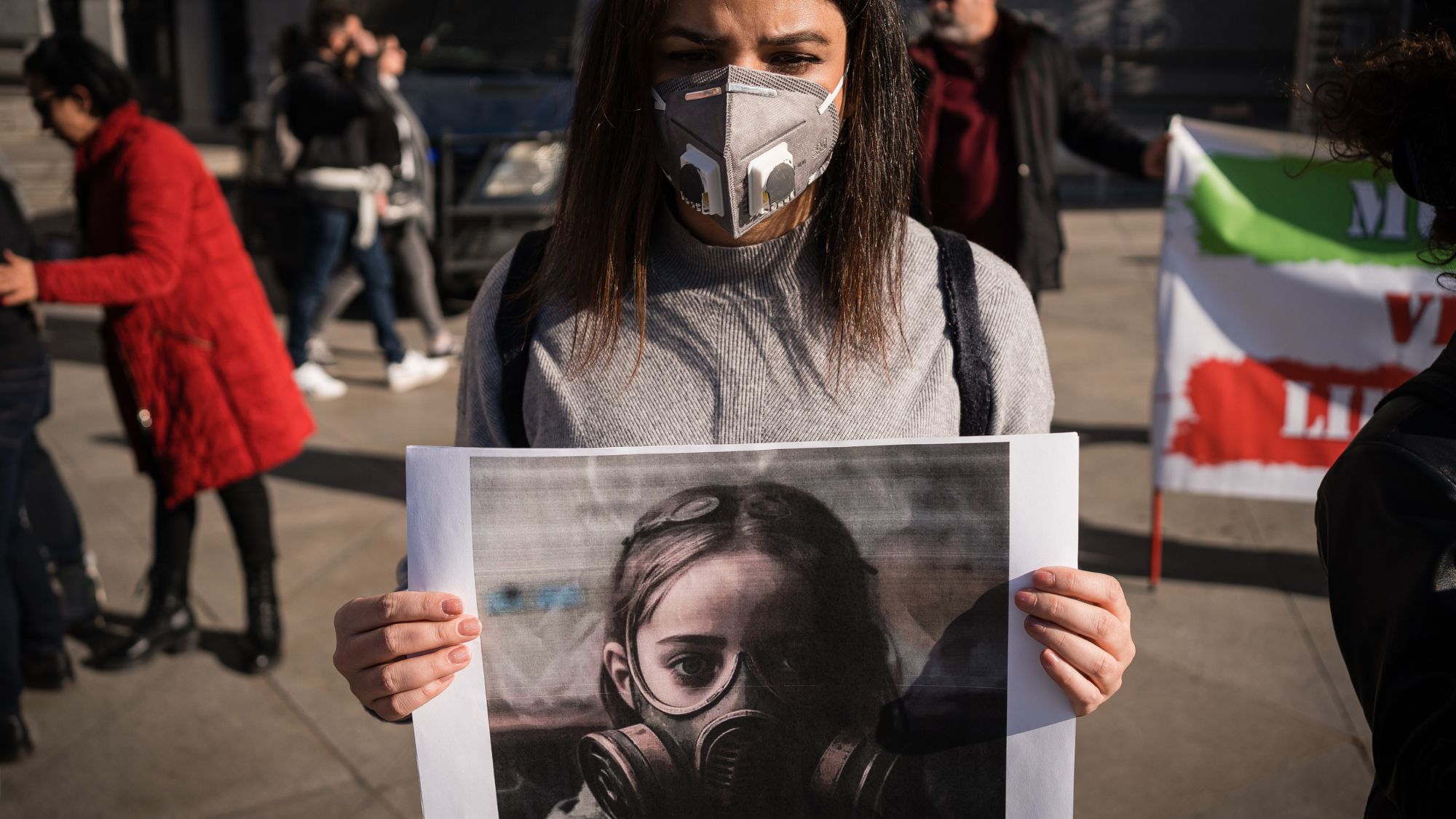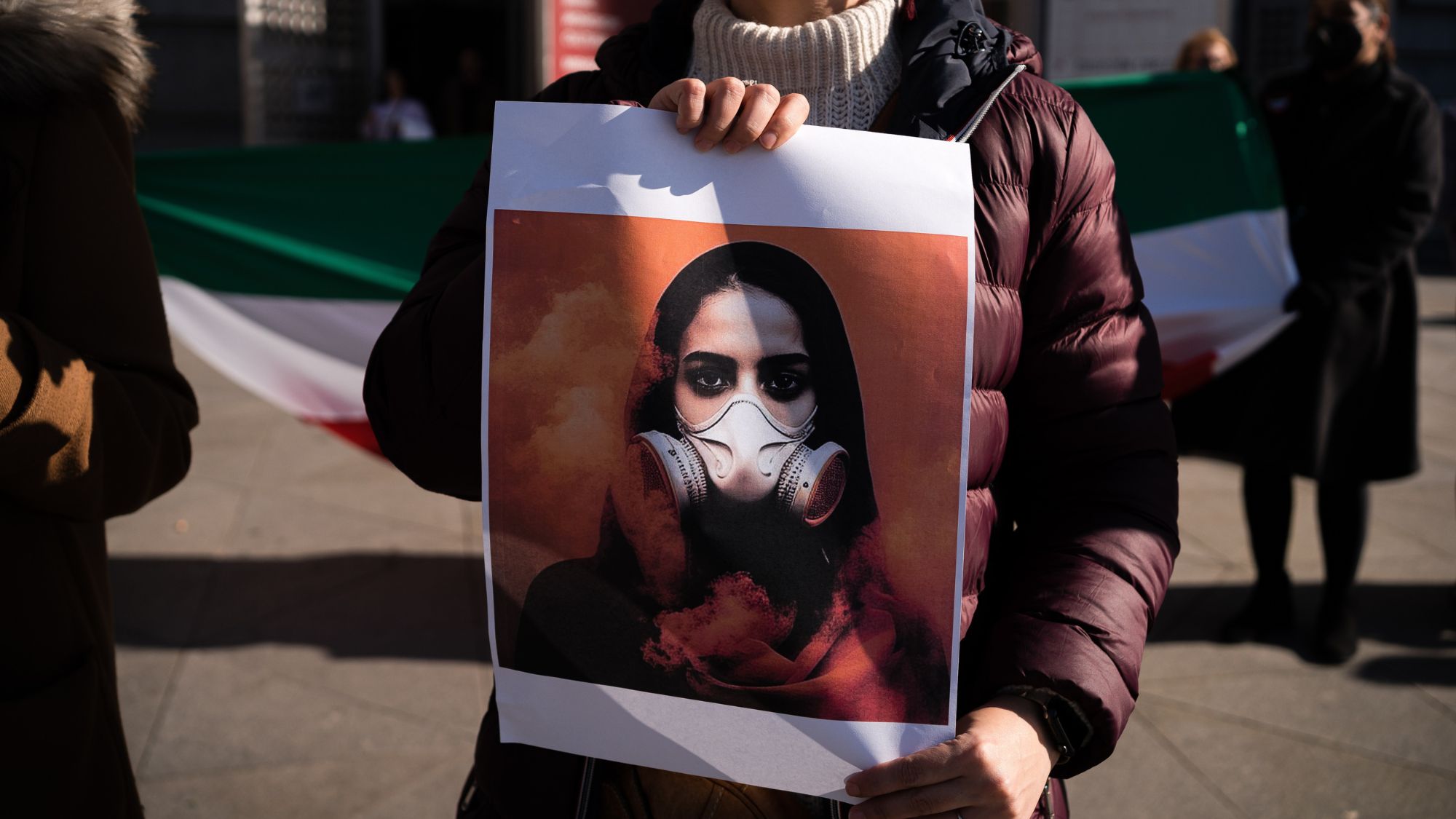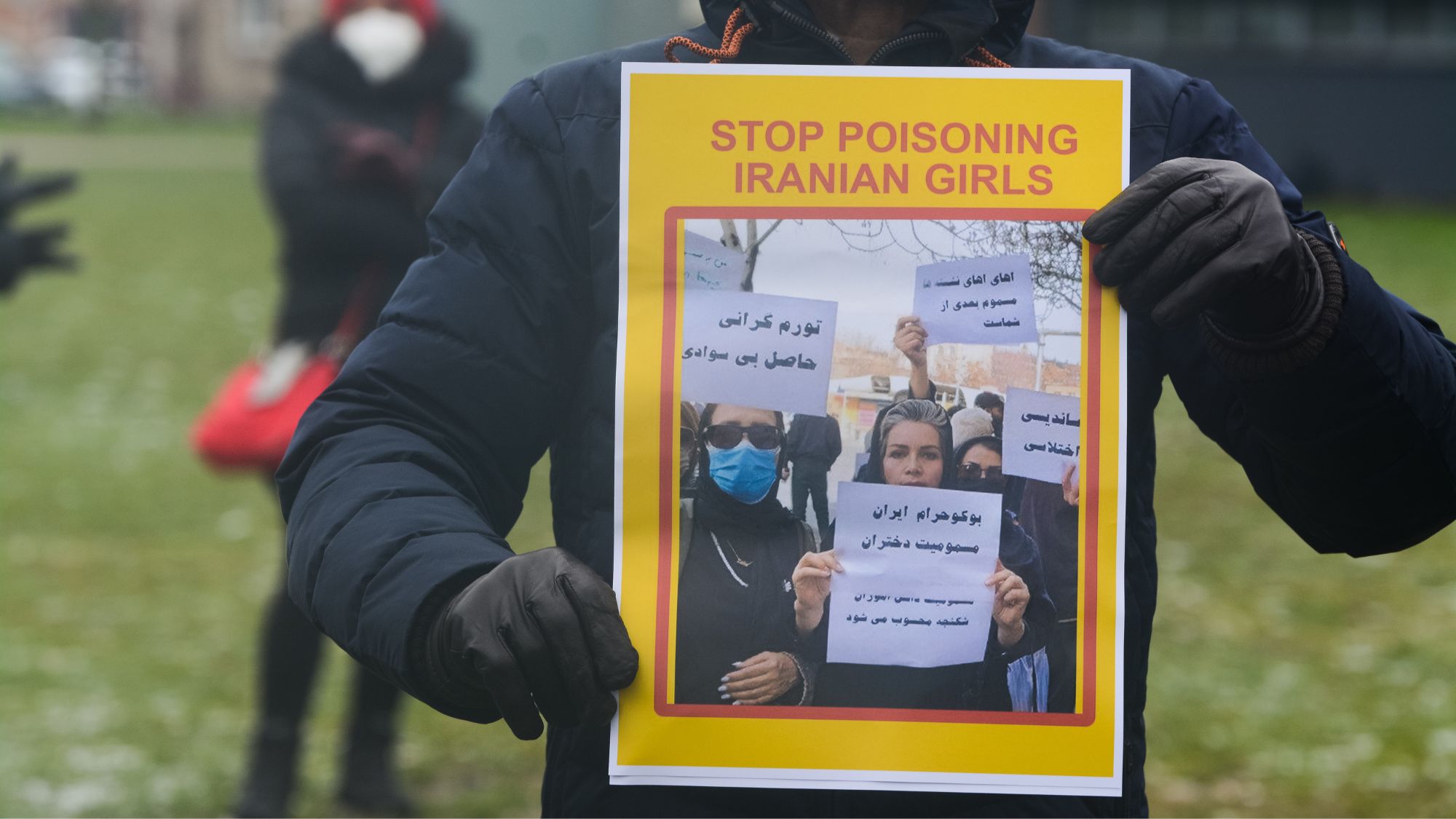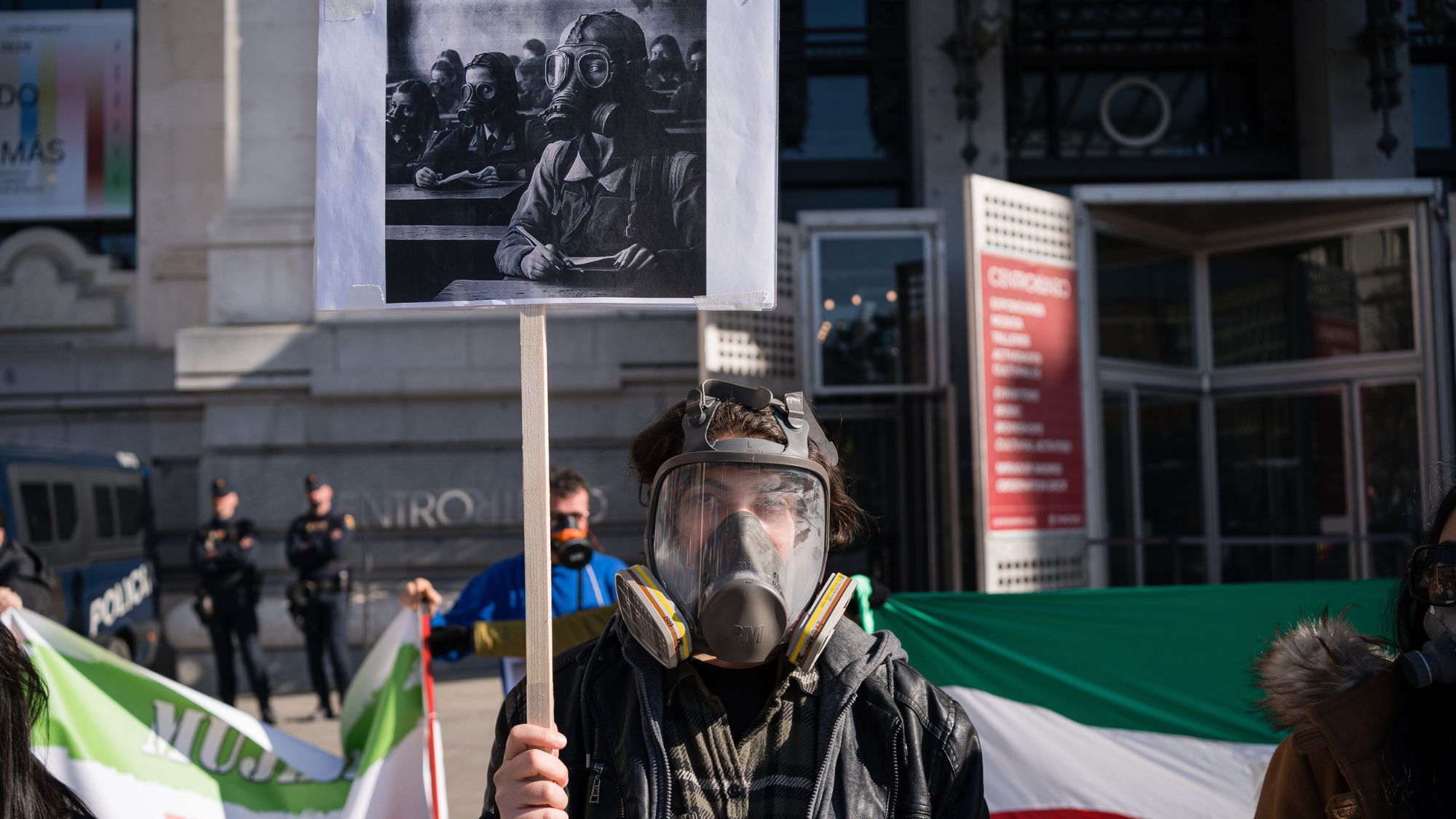Iran school girl poisonings: what we know so far
Over 100 people have been arrested in connection with the suspected poisoning of thousands of school girls across Iran.


Trigger warning: this article contains sensitive content
Over 100 people have been arrested in Iran this week, in connection with the suspected poisoning of thousands of school girls across the country.
As new cases and information are released each day, here's what we know about the crisis so far.
Iran School Girl Poisonings
A wave of suspected toxic gas poisonings have been reported at schools across Iran, targeting female students.
The first report of a poisoning attack in the country was back in November 2022, at a school in Qom, with the suspected attack in the north-central Iranian city hospitalising 18 school girls with respiratory issues, dizziness, fatigue and nausea.
In the three months since, the Associated Press has reported attacks in almost 300 schools across the country, impacting thousands of female students. It has been reported by local media and activists that dozens of these young girls were subsequently hospitalised. And at least one female student - an 11-year-old girl called Fatemeh Razaei, is reported to have died as a result.
At least 26 schools across five major Iranian cities have been affected by the poisonings, according to the BBC.
Marie Claire Newsletter
Celebrity news, beauty, fashion advice, and fascinating features, delivered straight to your inbox!

Iran School Girl Poisonings Investigation
Despite the wave of suspected chemical poisonings starting three months ago, little is known about them - who is behind them, how many have been targeted and the underlying motives.
Little has also been said by the authorities, with the attacks only reportedly acknowledged by officials in recent weeks.
“Initial inquiries show that a number of these people, out of mischief or adventurism and with the aim of shutting down classrooms and influenced by the created psychological atmosphere, have taken measures such as using harmless and smelly substances,” read a statement from Iran's Interior Ministry.
Some activists believe that the chemical attacks are linked to the state crack-down following the country-wide protests over the death of Mahsa Amini. While others believe religious groups to be behind the poisonings, which could be an attack on the education of women and girls.
Ayatollah Ali Khamenei, Supreme Leader of Iran, has since spoken out, announcing on state TV, via Reuters: “Authorities should seriously pursue the issue of students’ poisoning."
He later continued: "If it is proven deliberate, those perpetrators of this unforgivable crime should be sentenced to capital punishment."

Iran School Girl Poisonings Arrests
It was announced this week that 100 people had been arrested in connection with the Iran school girl poisonings.
Little is known about the arrests so far, but Iran's Interior Ministry has confirmed that suspects had been "identified, arrested and investigated" across several Iranian cities.
It went on to report that the suspects had "hostile motives", and had "tried to create fear and horror among people and students" and "shut down schools".

Activists on the Iran school girl poisonings
In the weeks since, high profile Iranian activists have taken to social media to call for action, under the hashtag, #SaveIranianSchoolgirls.
"Girls in Iran continue to be chemically poisoned at school while the world looks away," Nazanin Boniadi posted to Instagram, alongside a photograph of a young Iranian woman in a gas mask. "Nothing scares despotic theocrats more than free, politically active girls and women. The sign says 'Until our last breath #WomanLifeFreedom.' Their courage is astounding."
A post shared by Nazanin Boniadi (@nazaninboniadi)
A photo posted by on
"School girls are being poisoned by Iran's Islamic regime by a toxic gas in school," posted Darya Safai. "This is terrorizing young girls who took off their hijab for freedom after the murder of #MahsaAmini. More than a hundred schools had poisoning by the regime today alone. However, that doesn’t stop girls from continuing their struggle!"
We will continue to update this story.

Jenny Proudfoot is an award-winning journalist, specialising in lifestyle, culture, entertainment, international development and politics. She has worked at Marie Claire UK for seven years, rising from intern to Features Editor and is now the most published Marie Claire writer of all time. She was made a 30 under 30 award-winner last year and named a rising star in journalism by the Professional Publishers Association.
-
 How the slogan t-shirt became this season's must-have - and why it's more than just another trend
How the slogan t-shirt became this season's must-have - and why it's more than just another trendNot just another Nineties throwback
By Clementina Jackson
-
 How are Trump’s tariffs affecting the fashion industry?
How are Trump’s tariffs affecting the fashion industry?The fluctuating situation in the US is having very real consequences
By Rebecca Jane Hill
-
 Here's every character returning for You season 5 - and what it might mean for Joe Goldberg's ending
Here's every character returning for You season 5 - and what it might mean for Joe Goldberg's endingBy Iris Goldsztajn